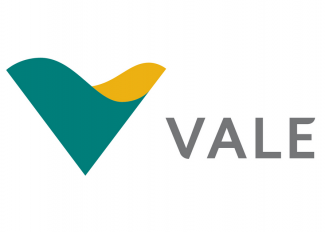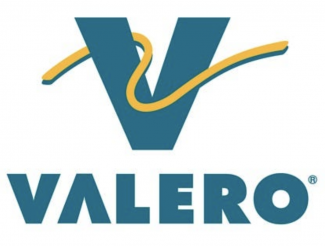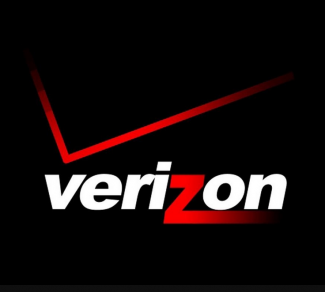Gulliver
Exposing corporate wrongdoing
Type the name of a company in the search box below. To conduct a wider search, please pick from one (or more) of the drop down menus below.
Vale S.A.
Vale
Vale is the largest producer of iron ore and nickel in the world. It also owns a sprawling network of railroads, ships, and ports used to transport this ore as well as a number of major hydro-electric plants. Founded in 1942 as a state-owned enterprise by the Brazilian government, it was originally named Companhia Vale do Rio Doce (CVRD). It was partially privatized in 1997 but the Brazilian government retains control. Some of the biggest environmental disasters associated with Vale include the vast Carajás Iron Mine in the state of Para as well as two major waste dam failures in the state of Minas Gerais. The collapse of the Fundão dam at the Germano iron ore mine in November 2015 killed 19 while the collapse of the Brumadinho dam at the Córrego do Feijão iron ore mine in January 2019 killed 270.
Valero Energy
Valero Energy’s main business is petroleum refineries. It was founded in 1980 in San Antonio, Texas, as a successor to the Coastal States Gas Corporation in Texas after Coastal States went out of business. Most of its refineries are in the U.S. but it also own a refineries in Québec, Canada and in Wales, UK. In 2005, Valero was ordered to pay $5.5 million in fines for air pollution from its refineries across the country and to spend another $700 million in upgrades. In 2007, Valero was ordered to pay another $4.25 million in fines and spend $232 million on controls at refineries in Ohio, Tennessee and Texas. Despite these upgrades, data gathered by the local air quality management district showed that Valero’s refinery in Benicia, California, secretly released pollutants like benzene hundreds of times the legal limit on average between 2003 and 2018 before it was discovered. U.S. Environmental Protection Agency data also shows that the company refinery in St. Charles, Louisiana, had the highest levels of soot release of all the 50 largest refineries in the country, with levels 20 percent over federal limits, a rate that has increased over 46 percent over 2017.
Vattenfall
Vattenfall is a Swedish state-owned energy company that derives most of its energy from hydroelectric dams and nuclear power. It has attempted to portray itself as green by selling off power plants and lignite coal mines in Germany to Energetický a Průmyslový Holding (EPH). The plants are still running at almost full capacity and will not shut down until 2038.
The company sued the government of Germany twice when it stood to lose profits in the face of environmental regulation. The first case was brought in 2009, in which Vattenfall demanded €1.4 billion in compensation over the imposition of strict environmental requirements to protect the Elbe River from the Moorburg coal-fired power station. In the second case, Vattenfall sued for €3.7 billion in 2012 in compensation for the decision to shut down the company’s nuclear power plants.
Vattenfall has been criticized for its role in the design of the Theun Hinboun hydropower dam in Laos, which displaced thousands in the 1990s. In Colombia, it sources coal from the Cerrejón coal mine and associated port and railroad were constructed by the forcible removal of the Indigenous Wayüu community of Tamaquito as well as the Afro-Colombian inhabitants of Tabaco beginning in the 1980s with little or no compensation.
Verizon
Verizon is the second-largest U.S. telecommunications provider. It is an heir to the American Bell Telephone Company network founded in 1877 that was broken up into seven regional companies a century later. One of those seven was Bell Atlantic, which later re-acquired other parts of the original network, and eventually became Verizon in the year 2000. Verizon was outed by National Security Agency whistleblower Edward Snowden in 2013 for collaborating with the spy agency to secretly collect communications data of millions of U.S. customers. The company has lobbied heavily against ‘net neutrality’ which requires companies to provide Internet content at the same speed rather than favoring one content provider (such as major video and web distributors) over the others.
Volkswagen
Car manufacturer Volkswagen (which means “the people’s car” in German) was founded in 1934 as a prestige project of Adolf Hitler to develop a cheap vehicle that could be used by the general population. The first car that it manufactured was the Beetle that was built by migrant workers from Hungary, Poland and the Soviet Union as well as forced labor from concentration camps during World War II. Over the years, Volkswagen did business with the apartheid regime in South Africa as well as the Brazilian military dictatorship in 1964-1965, where it turned over trade unionists and suspected communist sympathizers to the police who then tortured them. The company has since agreed to compensate workers enslaved in Nazi Germany as well as victims of police torture in Brazil.
In recent years, Volkswagen has been forced to pay US$25 billion in fines, penalties, civil damages and restitution in the U.S. for the Dieselgate emissions scandal, after it secretly installed a “defeat” device into 11 million cars sold worldwide between 2008 and 2015 to make it appear that the vehicles did not exceed legal limits for pollution. This was despite the fact that some of the company’s cars were emitting up to 40 times greater than the maximum allowed for nitrogen oxide.




